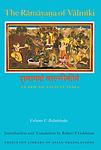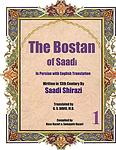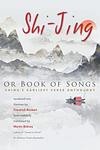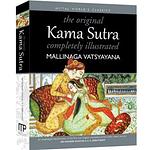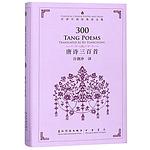The Greatest Non-Western "Ancient Literature" Books of All Time
Click to learn how this list is calculated.
This list showcases a comprehensive and trusted collection of the greatest books from Non-Western literature. Curated through a specialized algorithm, it amalgamates 300 'best of' book lists to present a definitive guide to essential literary works from Asia, Africa, the Middle East, Latin America, and beyond. This selection celebrates the diverse and vibrant literary traditions of the world, offering readers a window into a myriad of fascinating narratives and perspectives. For more information on how these books are selected, please visit the rankings page.
Genres
Ancient Literature refers to the body of written works produced during the earliest periods of human history, typically up until the fall of the Roman Empire in the 5th century AD. This category encompasses a diverse array of texts, including religious scriptures, epic poetry, philosophical treatises, historical accounts, and dramatic plays, originating from various civilizations such as the Sumerians, Egyptians, Greeks, Romans, Chinese, and Indians, among others. Notable works within this genre include the "Epic of Gilgamesh," Homer's "Iliad" and "Odyssey," the plays of Sophocles and Euripides, the philosophical writings of Plato and Aristotle, the "Mahabharata" and "Ramayana" from India, and the foundational texts of Confucianism and Taoism in China. Ancient literature provides invaluable insights into the thoughts, beliefs, and cultural practices of early societies, and continues to influence modern storytelling, philosophy, and ethics.
Date Range
Reading Statistics
Click the button below to see how many of these books you've read!
Download
If you're interested in downloading this list as a CSV file for use in a spreadsheet application, you can easily do so by clicking the button below. Please note that to ensure a manageable file size and faster download, the CSV will include details for only the first 500 books.
Download-
1. Epic of Gilgamesh by Unknown
This ancient Mesopotamian epic follows the story of Gilgamesh, a demigod king who rules over the city of Uruk. Unhappy with his reign, the gods create a wild man named Enkidu to challenge him. However, Gilgamesh and Enkidu become close friends and embark on several adventures together, including defeating the demon Humbaba and killing the Bull of Heaven. After Enkidu's death, Gilgamesh becomes obsessed with finding immortality, leading him on a journey to meet Utnapishtim, the only human who has been granted eternal life. The narrative explores themes of friendship, mortality, and the meaning of life.
-
2. Mahabharata by Vyasa
The book is an English translation of the ancient Indian epic, originally written in Sanskrit, which tells the story of a great war that took place between two groups of cousins, the Kauravas and the Pandavas. The narrative explores themes of duty, righteousness, and honor while also featuring a rich array of gods, goddesses, and supernatural beings. It is not only a tale of war and conflict, but also a profound philosophical and spiritual treatise, containing the Bhagavad Gita, a sacred text of Hindu philosophy.
-
3. Tao Te Ching by Lao Tsu
This ancient text is a fundamental guide to the philosophy of Taoism, offering wisdom on how to live a balanced, virtuous life in harmony with the natural world and the Tao, the source of all existence. The book explores themes such as simplicity, humility, and non-aggression, emphasizing the importance of understanding and aligning oneself with the Tao. It provides guidance on leadership, personal growth, and spiritual enlightenment, advocating for a life of peace, contemplation, and connection with the universe.
-
4. Ramayana by Valmiki
The book is an ancient Indian epic poem which follows the journey of Prince Rama as he embarks on a quest to rescue his beloved wife Sita from the clutches of Ravana, the demon king. The narrative explores themes of morality, dharma (duty/righteousness), and the struggle between good and evil. The story is not just about Rama's battle against Ravana, but also his spiritual journey and the importance of upholding one's duties and responsibilities.
-
5. The Book of Job by Unknown
"The Book of Job" is a profound biblical narrative that explores the themes of faith, suffering, and divine justice. It tells the story of Job, a prosperous and righteous man who experiences immense suffering as he loses his wealth, children, and health. Despite his trials, Job maintains his faith in God, engaging in intense dialogues about human suffering and divine justice. The story concludes with God restoring Job's fortunes and blessing him more abundantly than before, demonstrating the inscrutable nature of divine wisdom and the rewards of unwavering faith.
-
6. The Pillow Book by Sei Shōnagon
"The Pillow Book" is a collection of personal observations, anecdotes, and reflections by a woman in the Heian court of Japan. It presents a detailed and vivid picture of court life, including the lavish ceremonies, the rivalries and intrigues, the idle pastimes of the courtiers, and the romantic escapades of the empress and her consorts. The book also contains lists, poetry, and personal musings, providing a unique perspective on the culture and customs of the Heian period.
-
7. The Recognition of Sakuntala by Kālidāsa
"The Recognition of Sakuntala" is an ancient Indian play that tells the story of a beautiful woman named Sakuntala who lives in a hermitage and falls in love with King Dushyant. After a series of misunderstandings and a curse that causes the king to forget Sakuntala, the two are eventually reunited when a fisherman finds the royal signet ring that Dushyant gave Sakuntala, leading to her recognition. The play is a classic example of the Indian dramatic tradition, with its mix of romance, comedy, and elements of the supernatural.
-
8. Masnavi by Jalal al-Din Muhammad Rumi
Masnavi is a collection of poems that offer deep and profound reflections on the various aspects of life. The author, a 13th-century Persian poet, philosopher, and theologian, uses lyricism and allegorical tales to explore themes such as love, divine mysticism, and the human condition. The work is highly regarded for its spiritual insight and wisdom, often drawing on Quranic verses and Hadiths for inspiration. It is considered one of the greatest works of Persian literature and a pinnacle of Sufi mystic tradition.
-
9. Bostan by Saadi
"Bostan" is a classic Persian poetry book that delves into ethical philosophy and Sufism. The book is divided into ten chapters, each focusing on a different virtue such as justice, gratitude, love, and humility. The author uses beautiful and vivid imagery, along with tales and anecdotes, to illustrate moral and ethical lessons. The book is revered for its deep spiritual insights and wisdom, offering readers a guide on how to live a virtuous and meaningful life.
-
10. Mencius by Mencius
"Mencius" is a philosophical text that presents the teachings and thoughts of Mencius, a follower of Confucius. The book is a compilation of dialogues, anecdotes, and allegories that illustrate Mencius's views on human nature, morality, and political theory. Central to his philosophy is the belief in the inherent goodness of human nature and the importance of cultivating one's moral character. The book also discusses his ideas on proper governance, advocating for a benevolent and virtuous ruler who prioritizes the welfare of the people.
-
11. I Ching by China
This ancient Chinese text is a divination system and book of wisdom. It provides guidance for moral and ethical decisions through 64 hexagrams, which are six-line figures made up of broken and unbroken lines. Each hexagram represents a specific situation or state of affairs, and the text provides interpretations and advice for each. The book has been used for centuries as a tool for decision-making, prediction, and gaining deeper understanding of situations and relationships.
-
12. The Book of Songs by China
"The Book of Songs" is a collection of ancient Chinese poetry, providing a rich cultural and historical insight into early Chinese society. The anthology includes various types of poems, such as folk songs, hymns, and courtly songs, reflecting the life, customs, and beliefs of different social classes. It serves as a significant literary work and historical document, revealing the evolution of the Chinese language, thoughts, and values over centuries.
-
13. Bhagavad Gita by Unknown
The book is a 700-verse Hindu scripture that is part of the Indian epic Mahabharata. It takes the form of a dialogue between Prince Arjuna and the god Krishna, who serves as his charioteer. On the battlefield of Kurukshetra, just as the war is about to begin, Arjuna is filled with doubt and moral dilemma about fighting in the battle. Krishna imparts spiritual wisdom and guidance to Arjuna, addressing his concerns and leading him through a profound discourse on various philosophical concepts, including the nature of life, the soul, and one's duties. The text covers topics such as righteousness, devotion, and the paths to spiritual liberation, ultimately encouraging Arjuna to rise to his duty as a warrior with the understanding that the true self is eternal and beyond physical conflict.
-
14. Satyricon by Petronius
The book in question is a satirical Roman work that provides a vivid, episodic portrayal of the decadent society during the reign of Nero. It follows the misadventures of the narrator and his companions as they navigate a world of excess, corruption, and hedonism. Through a series of events ranging from banquets to shipwrecks, the narrative offers a critique of the moral decay of Roman society, using humor, irony, and the perspective of characters from various social strata. The fragmented nature of the surviving text adds to its enigmatic and chaotic depiction of the period's social mores.
-
15. Shahnameh by Ferdowsi
"Shahnameh" is an epic poem that chronicles the history of pre-Islamic Persia, from the creation of the world up until the Islamic conquest of Persia in the 7th century. This literary masterpiece intertwines myth, history, and folklore to tell the stories of legendary kings, heroes, and villains, such as the tragic hero Rostam and the tyrant Zahhak. The narrative also explores themes of love, loss, and moral dilemmas, providing a rich and nuanced portrayal of Persian culture and identity.
-
16. Kama Sutra by Vātsyāyana
This ancient Indian text is a guide to virtuous and gracious living that discusses the nature of love, family life, and other aspects pertaining to pleasure-oriented faculties of human life. It is a comprehensive manual on the art of love and sexual behavior, providing detailed advice on courtship, marriage, and the act of lovemaking. The text, while often associated solely with sexual positions, covers a wide range of topics including the duties and privileges of a wife, advice for courtesans, and methods to attract others.
-
17. Attis And Other Poems by Catullus
"Attis and Other Poems" is a collection of lyrical works that delve into themes of love, desire, and personal anguish. The poems are characterized by their emotional intensity and vivid imagery, often reflecting the poet's own tumultuous love affairs and inner turmoil. The titular poem, "Attis," stands out with its mythological narrative and exploration of themes such as identity and transformation. Throughout the collection, the poet's mastery of language and form is evident, as he skillfully weaves together personal experiences with broader reflections on human nature and the complexities of the human heart.
-
18. Treatises On Friendship And Old Age by Marcus Tullius Cicero
The book comprises two philosophical essays that delve into the nature and significance of friendship and the challenges and wisdom of old age. The first essay explores the meaning of true friendship, its role in society, and its importance as a foundation for moral and happy life, emphasizing mutual respect, virtue, and genuine affection. The second essay addresses the concerns of aging, arguing against the common perceptions of old age as a miserable phase. Instead, it presents old age as a period capable of great mental and intellectual activity and satisfaction, provided one has lived a life based on virtue and fulfillment. Through these essays, the text provides timeless insights into handling some of life's most profound transitions with grace and wisdom.
-
19. The Collected Songs of Cold Mountain by Han Shan
"The Collected Songs of Cold Mountain" is a compilation of poems by a legendary Chinese poet. The book is a collection of over 300 poems filled with wit, wisdom, and spiritual insight. The poet, a recluse who lived in the mountains, expresses his views on life, nature, and the impermanence of human existence through his deeply philosophical and often humorous verses. He is considered a significant figure in Chinese literature and his works have greatly influenced Zen Buddhism.
-
20. The Three Hundred Tang Poems by China
This anthology is a comprehensive collection of 300 poems from the Tang Dynasty, one of the golden ages of Chinese literature. The poems are rich in imagery and emotion, reflecting the diverse experiences of life during that period, including love, nature, war, and the human condition. The collection is renowned for its representation of the poetic forms and styles of the Tang Dynasty, making it an essential read for those interested in classical Chinese literature.
-
21. Meghadūta by Kālidāsa
"Meghadūta" is an ancient Indian Sanskrit poem in which a Yaksha (a nature spirit) sends a message to his distant wife through a cloud, or "meghaduta". The Yaksha has been exiled for a year due to neglecting his duties, and is pining for his beloved. The poem beautifully describes the Yaksha's longing, the journey of the cloud, and the various landscapes, cities, and hermitages it passes over on its way. The cloud is asked to convey the Yaksha's deep love and longing to his wife, providing an evocative exploration of love, longing, and separation.
-
22. Epistles by Horace
"Epistles" is a collection of poetic letters offering insights into the human condition, moral philosophy, and the art of living well. Written in the first century BCE, the work reflects the author's mature thoughts on various subjects, ranging from personal ethics to literary criticism. Through these letters, the poet shares his wisdom with friends and notable contemporaries, employing a conversational tone that blends humor, irony, and sincerity. The epistles serve as a guide to practical wisdom, emphasizing moderation, self-awareness, and the importance of living in harmony with nature and society.
-
23. Satires by Horace
"Satires" is a collection of poetic essays that delve into the follies and vices of Roman society during the first century BCE. Through a series of witty, critical, and often self-deprecating poems, the author explores themes such as greed, corruption, and social ambition, while advocating for a life of moderation and philosophical contentment. Employing a conversational tone and a keen eye for the absurd, the work satirizes the behaviors of both the elite and the common people, offering a timeless reflection on human nature and the pursuit of happiness.
-
24. Eclogues by Virgil
The book in question is a collection of ten pastoral poems that delve into the idealized lives of shepherds in classical antiquity, set against the backdrop of a changing rural landscape. Through dialogues and monologues, the poems explore themes of love, the bucolic lifestyle, and the political turmoil of the time. The work reflects on the tensions between the simplicity of rural life and the encroaching influence of external forces, often drawing on mythological and allegorical elements to convey its messages. The pastoral mode serves as a platform for the poet to address broader social and political issues, while also celebrating the beauty and tranquility of nature.
-
25. Georgics by Virgil
The work in question is a didactic poem divided into four books, which collectively offer a rich and detailed guide to various aspects of agricultural life and practices in the ancient world. It covers topics such as the cultivation of crops, the care of trees and vines, the husbandry of livestock, and the management of bees, all interwoven with philosophical reflections on humanity's relationship with nature and the gods. The poem also explores the hardships and rewards of rural life, emphasizing the importance of hard work, experience, and understanding the rhythms and moods of the natural world. Throughout, the text is imbued with a deep appreciation for the land and serves as both a practical manual and a meditation on the art of living in harmony with the environment.
Reading Statistics
Click the button below to see how many of these books you've read!
Download
If you're interested in downloading this list as a CSV file for use in a spreadsheet application, you can easily do so by clicking the button below. Please note that to ensure a manageable file size and faster download, the CSV will include details for only the first 500 books.
Download


